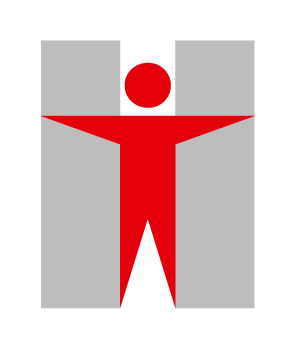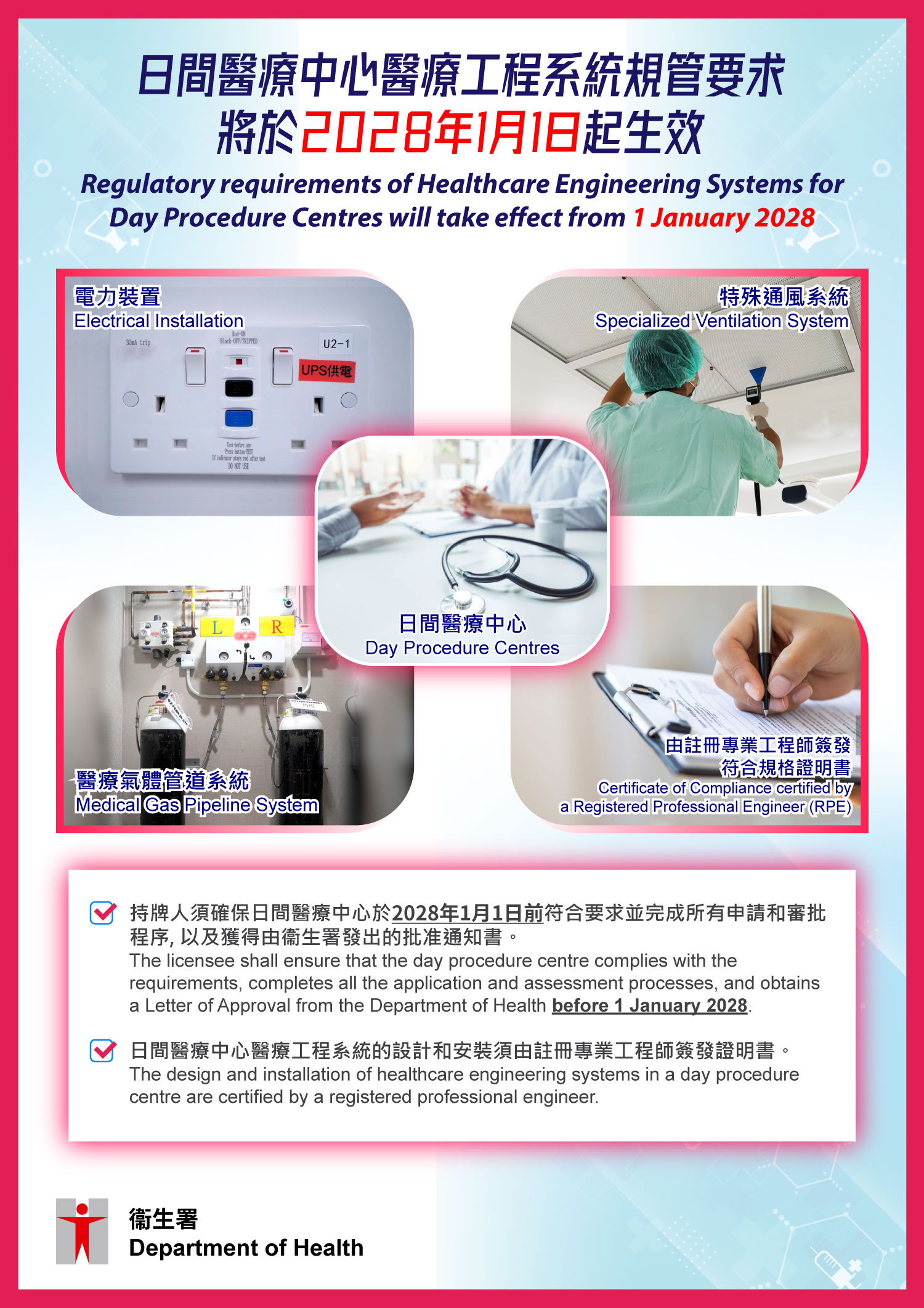Since 3 February 2023, the requirements of specific healthcare engineering systems (i.e. electrical installation, specialized ventilation system and medical gas supplies) of day procedure centres have formed part of the regulatory standard in the Code of Practice for Day Procedure Centres. As a transitional arrangement, such requirements will take effect from 1 January 2028.
Prospective applicants of day procedure centres licences and licensees of existing facilities should engage the engineering service providers so as to ensure that all relevant requirements pertaining to the healthcare engineering systems are adhered to. To this end, this office has compiled A Practical Guide for Healthcare Engineering Systems in Day Procedure Centres, associated pamphlet and Frequently Asked Questions about Healthcare Engineering Systems in Day Procedure Centres and Clinics for the trade practitioners and stakeholders, such as licensees of day procedure centres, registered professional engineers, consulting engineers and healthcare engineering installation contractors. These publications, though not exhaustive, outline the key points to note regarding the design, installation, operation and maintenance of healthcare engineering systems of day procedure centres, and other useful information, including examples of DOs and DON'Ts for compliance with the regulatory requirements.
On the other hand, many dental day procedure centres require compressed air to power dental instruments and a vacuum system to remove detritus from the operation site. Where dental compressed air and vacuum systems (DAVS) are installed in day procedure centres, licensees may refer to Annex III of the Code of Practice for Day Procedure Centres (i.e. Guidelines for Dental Compressed Air and Vacuum Systems) for general guidance on the design, installation, operation and maintenance of such systems. To facilitate prospective applicants of day procedure centre licences and licensees of existing facilities in familiarizing with these systems, this office has also compiled A Practical Guide for Dental Compressed Air and Vacuum Systems in Day Procedure Centres and associated pamphlet in order to outline the key points to note regarding design, installation, operation and maintenance of these systems, including examples of DOs and DON'Ts, for achieving the safe and effective delivery of medical services in healthcare facilities.

